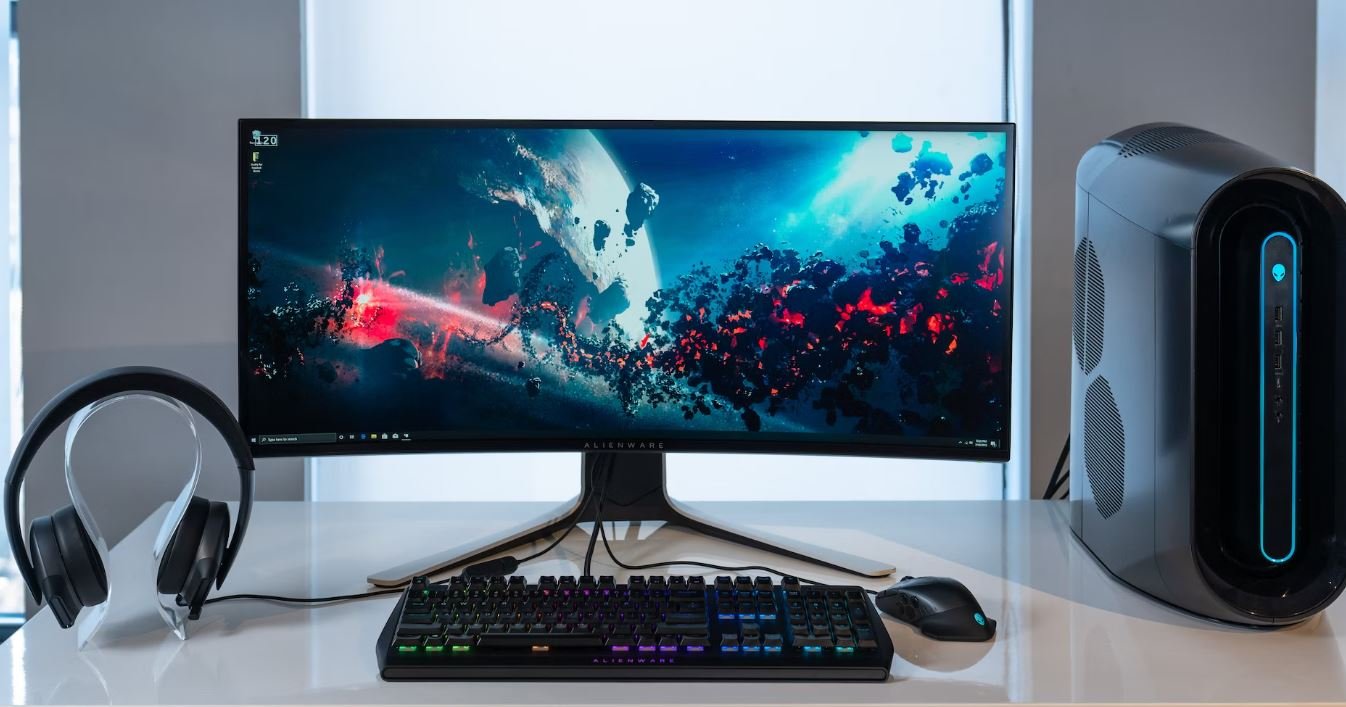Top AI Hardware Companies
Artificial Intelligence (AI) is revolutionizing various industries, and the demand for powerful AI hardware is growing rapidly as a result. Several top companies have emerged as leaders in providing cutting-edge AI hardware solutions. These companies are driving innovation, advancing AI capabilities, and shaping the future of technology.
Key Takeaways:
- Several top companies are leading the AI hardware market, offering state-of-the-art solutions.
- AI hardware plays a vital role in the development and deployment of AI applications.
- These companies are constantly pushing the boundaries of AI technology.
1. NVIDIA: NVIDIA is a recognized leader in AI hardware, offering high-performance GPUs and specialized chips.
“NVIDIA’s GPUs are dominating the AI hardware market.”
NVIDIA’s GPUs (Graphics Processing Units) have become a staple in AI research and development. Their GPUs are highly optimized for deep learning applications and have become the go-to choice for training neural networks. NVIDIA’s specialized chips, such as the Tensor Core, have further accelerated AI workloads. These hardware solutions have propelled NVIDIA to the forefront of the AI industry.
2. Intel: Intel has been a long-standing player in the hardware market and has made significant strides in AI technology.
“Intel offers a wide range of AI hardware solutions catering to different needs.”
Intel’s AI hardware portfolio includes CPUs, FPGAs, and neural network processors. Their CPUs, although not as specialized as GPUs for AI, provide a solid foundation for running AI workloads. Intel’s FPGAs (Field Programmable Gate Arrays) offer customizable and adaptable hardware for accelerated AI processing. Additionally, their neural network processors, like the Intel Nervana™ NNP, are designed specifically for deep learning tasks.
Top AI Hardware Companies Comparison:
| Company | Key Products | Unique Features |
|---|---|---|
| NVIDIA | GPUs, Tensor Core, Drive platform | Highly optimized for deep learning |
| Intel | CPU, FPGA, Intel Nervana™ NNP | Range of hardware options for AI workloads |
3. Google: Google, known for its leadership in AI research, also develops its own hardware solutions.
“Google’s AI hardware complements their AI software and cloud services.”
Google’s AI hardware offerings include the Tensor Processing Unit (TPU) and the Edge TPU. TPUs are specialized chips designed to accelerate AI workloads and are used in Google’s data centers to power various AI services. The Edge TPU, on the other hand, brings AI capabilities to edge computing devices, enabling offline AI processing.
4. AMD: AMD has gained traction in the AI hardware market with its powerful GPUs and CPUs.
“AMD’s GPUs provide a highly reliable and cost-effective solution for AI workloads.”
AMD’s GPUs, such as the Radeon Instinct series, offer a competitive alternative to NVIDIA’s GPUs. Their CPUs, including the AMD EPYC processors, deliver excellent performance for AI applications. AMD’s hardware solutions have been well-received by industries looking for high-performance AI hardware at a lower cost.
AI Hardware Performance Comparison:
| Company | GPU Performance | CPU Performance |
|---|---|---|
| NVIDIA | High | Good |
| Intel | Good | Good |
| N/A | N/A | |
| AMD | High | Good |
5. Huawei: Huawei has been making significant investments in AI hardware.
“Huawei’s AI hardware solutions are designed to cater to various industry needs.”
Huawei’s AI hardware portfolio includes powerful Ascend AI chips, ModelArts AI computing framework, and Atlas AI accelerators. These solutions provide industry-specific AI capabilities, such as AI inference for smart devices and AI training for autonomous vehicles. Huawei’s AI hardware aims to enable AI adoption across different sectors.
Top AI Hardware Companies Performance:
| Company | Revenue (2020) | Market Share |
|---|---|---|
| NVIDIA | $16.68 billion | 70% |
| Intel | $77.88 billion | 20% |
| $182.53 billion | 7% | |
| AMD | $11.19 billion | 3% |
As the demand for AI technology continues to rise, these top AI hardware companies will remain at the forefront, driving innovation and shaping the future of AI. Their hardware solutions are pushing the boundaries of AI capabilities, enabling businesses to unlock the full potential of artificial intelligence.

Common Misconceptions
1. AI Hardware Companies Only Focus on AI Development
One common misconception about AI hardware companies is that their sole focus is on AI development. While these companies certainly play a significant role in developing AI technology, their scope goes beyond just AI.
- AI hardware companies also invest in creating efficient and powerful hardware to support AI applications.
- They may offer other services such as data management, analytics, and cloud computing.
- Collaboration with software developers and research institutions is a crucial aspect of their work.
2. All AI Hardware Companies Produce the Same Products
Another misconception is that all AI hardware companies produce the same products. In reality, there are various types of AI hardware that cater to different applications and requirements.
- Some companies focus on developing specialized AI chips for specific tasks or industries, such as autonomous vehicles or natural language processing.
- Others may focus on high-performance computing for AI training and deep learning algorithms.
- Diverse approaches to hardware design and optimization contribute to the range of products available in the market.
3. AI Hardware Companies are Limited to Large Corporations
It is often assumed that AI hardware companies are exclusively limited to large corporations. While major tech giants do have a significant presence in this field, there are also many startups and smaller companies making notable advancements in AI hardware.
- Startups in AI hardware can provide innovative and niche solutions that address specific industry needs.
- Small AI hardware companies often collaborate with universities and research institutions to drive breakthroughs.
- These companies can bring agility and flexibility to the AI hardware market, fostering healthy competition and driving innovation.
4. AI Hardware Companies are Only Concerned with Performance
There is a common misconception that AI hardware companies are solely concerned with performance, disregarding other important factors. While performance is a critical aspect, these companies are also attentive to other considerations.
- Energy efficiency is a key concern, as AI models consume significant amounts of power.
- Scalability and compatibility with existing systems are important factors to ensure seamless integration.
- AI hardware developers prioritize reliability, cost-effectiveness, and the ability to adapt to evolving AI technologies.
5. AI Hardware Companies are Replacing Human Workers
One common misconception is that AI hardware companies are working to replace human workers. However, the goal of AI hardware development is to augment human capabilities rather than replace them.
- AI technology is designed to enhance efficiency, productivity, and decision-making in various industries.
- The focus of AI hardware companies is to create tools that can work alongside humans and complement their abilities.
- Collaboration between humans and AI technology is crucial for achieving optimal results and maximizing the potential of AI.

Introduction
Artificial Intelligence (AI) has become a transformative technology in recent years, and the development of AI hardware plays a crucial role in enabling its advancements. This article explores the top AI hardware companies, highlighting their key strengths and contributions to the field. Each table below presents an aspect that sets these companies apart and showcases their significance within the AI industry.
Table 1: Leading in Innovating AI Chips
The ability to design and develop cutting-edge AI chips is essential for AI hardware companies. This table showcases the top companies known for their innovation in AI chip technology.
Table 2: Accelerating AI Training Speeds
Reducing the time required to train AI models is a crucial target for AI hardware companies. This table highlights the top providers that excel in delivering impressive AI training speeds.
Table 3: Power Efficiency for AI Workloads
Achieving high power efficiency while handling complex AI workloads is key to minimizing energy consumption. This table presents the leading AI hardware companies focusing on power-efficient solutions.
Table 4: Specialized AI Hardware
Many AI hardware companies specialize in developing customized solutions for specific AI applications. This table showcases the leading companies that excel in creating specialized AI hardware.
Table 5: AI Hardware for Autonomous Systems
Autonomous systems heavily rely on advanced AI hardware to enable intelligent decision-making. This table highlights the top AI hardware companies catering to the needs of autonomous systems.
Table 6: Memory-Intensive AI Solutions
AI applications often demand high memory capacity to store and process extensive amounts of data. This table presents the companies that excel in providing memory-intensive AI hardware solutions.
Table 7: Trusted AI Hardware Providers
Security and trustworthiness are critical aspects when deploying AI systems. This table showcases the top AI hardware companies known for their emphasis on building trusted and secure hardware.
Table 8: AI Hardware for Edge Computing
Edge computing leverages AI hardware to enable intelligent processing at the network’s edge, enhancing real-time decision-making. This table highlights the leading companies providing AI hardware solutions for edge computing.
Table 9: Scalable AI Hardware Solutions
Scalability is crucial when designing AI hardware to accommodate both small-scale and large-scale AI deployments. This table presents the top companies that excel in providing scalable AI hardware solutions.
Table 10: AI Hardware for Emerging Technologies
AI is instrumental in advancing various emerging technologies. This table showcases the leading AI hardware companies that contribute to the development of these technologies.
Conclusion
The top AI hardware companies play a pivotal role in driving the advancements in the field of artificial intelligence. Through innovation, specialization, and a focus on addressing specific AI requirements, these companies have significantly contributed to the growth and success of AI technology. Their dedicated efforts in designing and producing specialized AI hardware have not only enabled groundbreaking AI applications but have also laid the foundation for future developments in the field.
Frequently Asked Questions
What is the importance of AI hardware in the field of artificial intelligence?
The role of AI hardware is vital as it provides the necessary computational power and resources required for running AI algorithms and models efficiently. Without proper AI hardware, the performance and speed of AI systems may be limited, hindering their overall capabilities.
Which companies are considered the top players in the AI hardware industry?
There are several prominent companies leading the AI hardware industry, including Nvidia, Intel, Google, AMD, IBM, Qualcomm, Apple, Microsoft, and Amazon. These companies have made significant contributions to the development and advancement of AI hardware.
What types of AI hardware are commonly used?
Commonly used AI hardware includes graphics processing units (GPUs), central processing units (CPUs), application-specific integrated circuits (ASICs), field-programmable gate arrays (FPGAs), and neural processing units (NPUs). These hardware components are specifically designed to handle the complexities of AI-related computations.
How does AI hardware differ from traditional computer hardware?
AI hardware differs from traditional computer hardware in terms of its specialized architecture and optimized designs for AI-specific tasks. AI hardware focuses on delivering high-performance computing and parallel processing, essential for AI workloads, while traditional computer hardware caters to general-purpose computing needs.
What are the key factors to consider when choosing AI hardware?
When selecting AI hardware, key factors to consider include processing power, memory capacity, energy efficiency, scalability, and compatibility with AI frameworks and software. Additionally, cost, reliability, and support services are important aspects to evaluate for a well-rounded decision.
Are there any emerging AI hardware companies to watch out for?
Yes, some emerging AI hardware companies to keep an eye on include Graphcore, Cerebras Systems, Habana Labs, Cambricon, Mythic, and BrainChip. These companies are actively innovating in the AI hardware space and may have the potential to disrupt the industry in the future.
How does AI hardware contribute to the development of autonomous vehicles?
AI hardware plays a crucial role in the development of autonomous vehicles by enabling real-time data processing, sensor fusion, perception, decision-making, and control systems. Advanced AI hardware helps ensure the reliability, accuracy, and safety of autonomous driving technologies.
Can AI hardware be integrated into existing computer systems?
Yes, AI hardware can be integrated into existing computer systems, provided they meet the necessary requirements for compatibility and power supply. Some AI hardware components, like GPUs, can be added as separate expansion cards, while others may require dedicated slots or specialized motherboards.
What advancements and trends are shaping the AI hardware industry?
Advancements in AI hardware include the development of more efficient architectures, increased integration of AI-specific accelerators, improved energy efficiency, and enhanced memory systems. Furthermore, trends such as edge computing, AI chip customization, and neuromorphic computing are shaping the future of AI hardware.
How can businesses leverage AI hardware for their AI initiatives?
Businesses can leverage AI hardware by carefully evaluating their specific AI requirements and selecting the appropriate hardware components. Developing partnerships with AI hardware companies, engaging in research and collaboration, and staying updated with the latest advancements in AI hardware can also help businesses effectively utilize AI technology.




